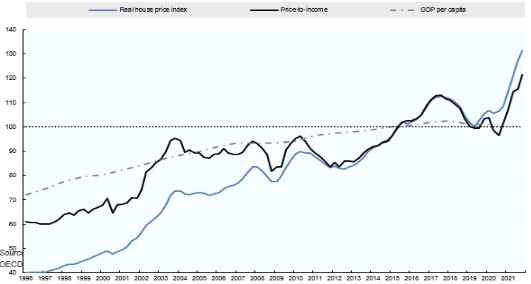by Robert Hamilton
Monotheism a Dysfunctional Deity
Humanity’s relationship conceptually to the belief in god continues to be a problematical one in the twenty first century. Monotheistic religious beliefs are by their very nature exclusive, and extremist groups, especially Islamic groups like ISIS are inciting acts of violence in the name of holy war. A greater understanding about the advent of monotheistic religion historically may illuminate the human underpinnings of its design. The intention of this article is to reveal the human roots of religion, whilst at the same time examining the concept of human identity and its links to the belief in a personal god.
God Is In The Way: Monotheism a Dysfunctional Deity.
Monotheism, in the ancient near east world, emerged as a new religious and cultural paradigm reflective of humanity’s evolutionary shift from a family based identity to an individual identity. Historically, what begins with a king, his beliefs and practices, are passed down to his people. A family of gods was, eventually, replaced by one god; the father of the universe. The god and the king became symbolically representative of the same omnipotent power.
Culturally, humanity seems to be on a journey that began with animism, which was then elevated to a belief in many gods, evolved then into monotheism, and now entertains the possibility that there is no god.[1] This last period was provocatively announced by the nineteenth century philosopher Friederich Nietzsche telling us that “god is dead… and we have killed him”.[2] Nietzsche put the blame firmly at the feet of science for the death of god and rhapsodised about the benefits of bygone polytheism. He also accused science of being a religion itself, with its strict adherence to truth as a very non-human trait. He, quite correctly, pointed out that human history is not greatly based on the worship of facts; rather it is full of incredible but untrue stories and great big lies. It is my contention that religion is one of those fanciful tales; quite likely the longest and most influential untruth of our recorded existence. Of course, for many people, all over the world, god is not dead and they believe strongly in his existence. It is the main three monotheistic religions: Judaism, Christianity and Islam, which house the majority of believers in this one god. But is this one god the same or are there three different versions of him? I am using the male gender specific pronoun because historically these monotheistic entities were always regarded as male – the father.
It may be useful to begin by defining some of the key terms to be used within this article. Monotheism: the belief in one god, and that that god is transcendent, or outside the world, but still actively controlling events.[3] Monotheism has been categorised into two forms by recent scholarship, ethical and intellectual. Ethical monotheism’s concerns are an exclusive relationship with one god, who believers feel the need to worship and from whom all morality is derived. Intellectual monotheism is said to be the outcome of a logical investigation into the source of the world and the conclusion that god existed before anything else. The term ‘monotheism’ was first used by English theologian Henry More in the sixteenth century.[4] More is considered to be a Cambridge Platonist, characterised by his dualistic theology of body and soul. It is important to understand the thinking of the author and his times when attempting to comprehend the meaning of the term ‘monotheism’. Monotheism was borne out of duality and has always exhibited duality at its core. Zoroastrianism is considered to be another monotheistic religious tradition and yet Ahura Mazda, the creator and god, is opposed by Angra Mainyu, another powerful deity; who is a twin to Spenta Mainyu.[5] All the monotheistic traditions have a duality within their divine structure; for where there is a good guy there must be a bad guy to explain when bad things happen.[6] Christianity has Satan, and Islam has Jinns and other demons. It can be questioned whether monotheism has ever actually existed and is merely the creation of a sixteenth century Christian theologian.
Polytheism: from the Greek polutheos, many gods, is defined here, as the belief in and worship of multiple deities.[7] These deities are usually part of some recognised hierarchy and may have some family association. They also, usually, are responsible for clearly defined functions and control particular spheres, sky, underworld, sea, seasons, and the like. The Graeco-Roman pantheon of gods and goddesses is particularly representative, as are the gods and goddesses of the Egyptian civilisations of the three millennia prior to its Christianisation. The term was first used during the Enlightenment period to identify the so called ‘primitive’ belief systems of civilisations of the non-Judaeo-Christian monotheistic kind. Polytheism has been identified as the defining feature of most indigenous cultures around the world.
Monolatrism: or monolatry is the worship of one god but with the acknowledgment that other gods exist. This has been viewed by some anthropologists as a stage between polytheism and full blown monotheism; there is evidence for monolatry in the Old Testament.[8] Hosea the eighth century BC prophet from the northern kingdom of Israel reports Yahweh’s rebuke of the Israelites for worshipping Baal; clearly this indicates the presence of the belief in other gods at this time.[9]
Animism: the nineteenth century sociologist Herbert Spencer believed that religion was born out of the animistic conceptions in early cultures that spirits inhabited all forms of life, animal and plant life.[10] This led to ancestor worship and evolved into deism, polytheism and eventually monotheism. The interesting fact about the, supposedly, strict forms of Judaic Christian monotheism is that they all exhibit belief in lesser deities like angels, demons and jinns.[11] The Roman Catholic faith venerates saints, which could also be viewed as a form of tribal elder worship.
In Egypt, and Mesopotamia, in the millennia of the Bronze Age there existed a number of cultures which can be identified as the precursors to those ancient civilisations we now call the ancestors of western civilisation; ancient Greece and Rome. In Assyria, Babylon and Ur, kingdoms rose, expanded and fell; gods with names like Sargon, Enki, Marduk, An and Lagash were prominent as cities clashed.[12] These gods were invariably part of a family or hierarchy of gods; these cultures had a pantheon of gods to worship. Aristotle recounted in his Politics:
“Also this explains why all races speak of gods as ruled by a king, because they themselves too are some of them actually now so ruled and in other cases used to be of old; and as men imagine gods in human form, so also they suppose their manner of life to be like their own.”[13]
©Robert Hamilton
Continued in God Is In The Way: Monotheism a Dysfunctional Deity
[1] Winfried Corduan, ‘In the Beginning God’, (Nashville: B & H Publishing Group, 2013). pp 1-49
[2] Friederich Nietzsche, The Gay Science, (Cambridge: Cambridge University Press, 2001). p 120
[3] B. Gardner, ‘Monotheism’, in Gods, goddesses and mythology, (Tarrytown, NY: Marshall Cavendish Reference, 2012). Retrieved from http://search.credoreference.com/content/entry/mcgods/monotheism/0
[4] John Henry, ‘”Henry More”‘, in The Stanford Encyclopedia of Philosophy, ed. by Edward N. Zalta (Stanford, 2012). Retrieved from http://plato.stanford.edu/entries/henry-more/
[5] Clarisse Herrenschmidt, ‘Once Upon a Time, Zoroaster’, History and Anthropology, 3 (1987). pp 209-230
[6] Jenny Rose, Zoroastrianism, (New York: IB Taurus, 2011). pp 20-26
[7] Ramdas Lamb, ‘Encyclopedia of Anthropology’, ed. by H. James Birx (Sage Publications, 2007), pp. pp 1890-92. Retrieved from http://dx.doi.org.simsrad.net.ocs.mq.edu.au/10.4135/9781412952453.n720
[8] Robert Wright, The Evolution of God, (London: Little Brown, 2009). pp 138-139
[9] Hosea 2: 2-13. ‘The Holy Bible’, (Crossway Bibles, 2011).
[10] Gerda Reith, ‘”Animism”‘, ed. by J. Michie (London: Routledge, 2001). Retrieved from http://search.credoreference.com/content/entry/routsocial/animism/0
[11] Ibn Warraq, Why I Am Not a Muslim, (New York: Prometheus Books, 2003). p 48
[12] Wright. pp 79-90
[13] Aristotle, ‘Politics’, (Harvard University Press, 1944). 1.1252b
[ebook_store ebook_id=”62657″]









